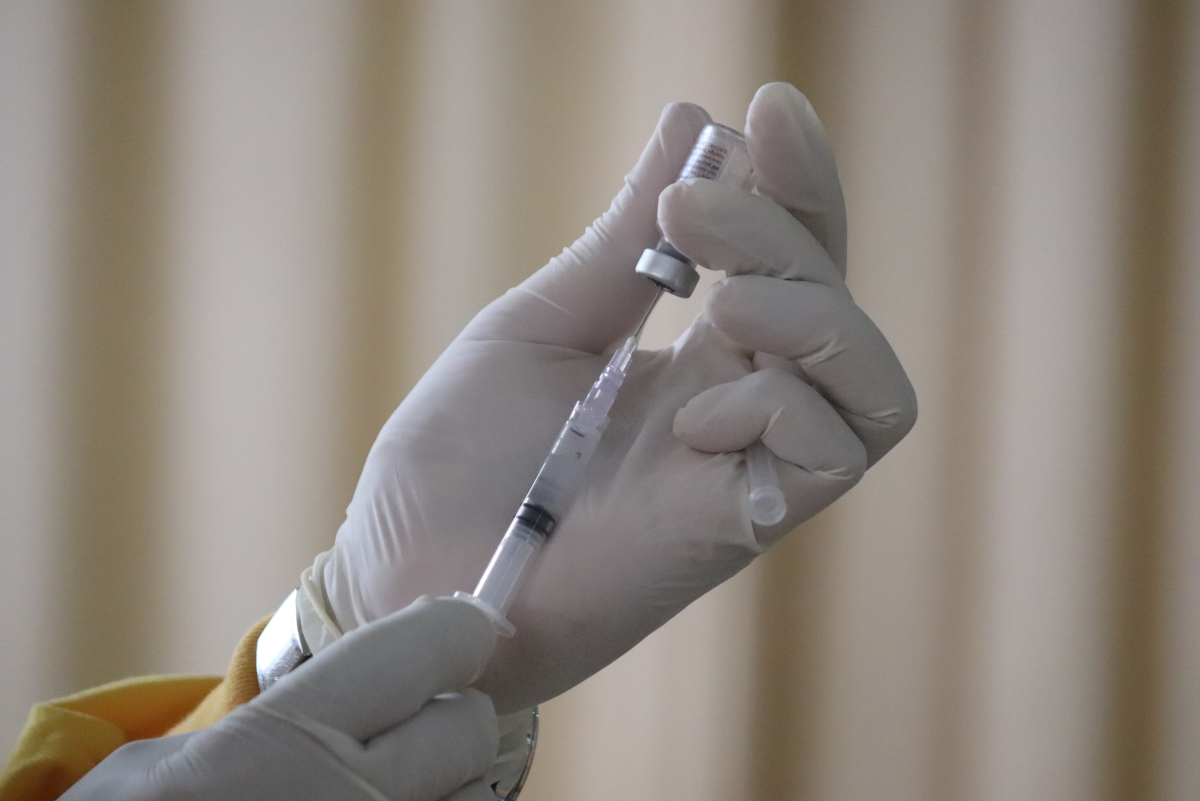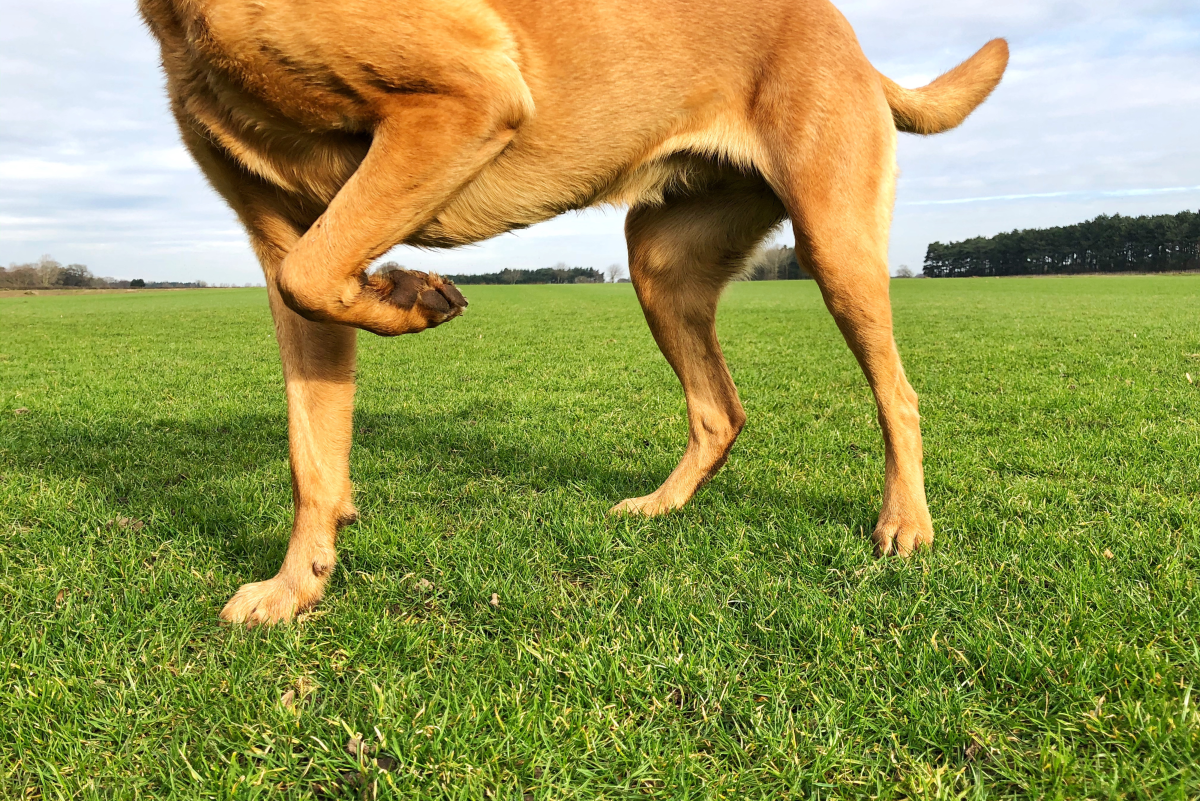Dealing with Common Puppy Health Problems for Newbie Dog Owners
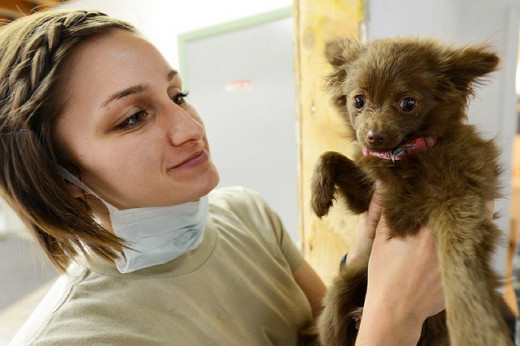
The number of specific health problems that can affect puppies is huge, and it is beyond the scope of this hub to cover each one in sufficient detail to be useful to puppy owners. Instead, the focus of this hub is to let you know how common puppy health problems can affect your dog's behavior and ability to train successfully. I will also outline some general guidelines that dog owners can follow to help avoid these problems. I will be focusing on factors that affect a puppy's health that are under direct control of dog owners, including feeding, vaccinations, tittering, as well as veterinary and chiropractor checkups.
Well-cared dogs also deal well with stress and recover from injury and illness fast.
Veterinarians, dog trainers, and breeders all agree that, all other things being equal, a dog that is fed what it needs, given enough exercise and mental stimulation, and regularly given behavior training, will rarely exhibit undesirable behavior problems. Well-cared dogs also deal well with stress and recover from injury and illness fast. Dogs that are not properly looked after commonly display negative behavioral traits and are more susceptible to illness and disease. For these reasons, it is incredibly important to understand fully your puppy's care needs.
Get Yourself a Handy Emergency Book
I would like to mention that I recommend all puppy owners get hold of a dedicated book on dog health. A dedicated guide will contain comprehensive information on how to avoid, diagnose, and treat all of the common puppy health problems, an essential resource that will help you to understand your puppy's health care needs, and help you to decide when it is necessary to visit the vet. It is worth investing in a dedicated guide to puppy health, such as The Ultimate Guide To Dog Health. It will quickly pay for itself by allowing you to diagnose what is wrong with your pup and avoid unnecessary vet bills (which lets face it can be very expensive).
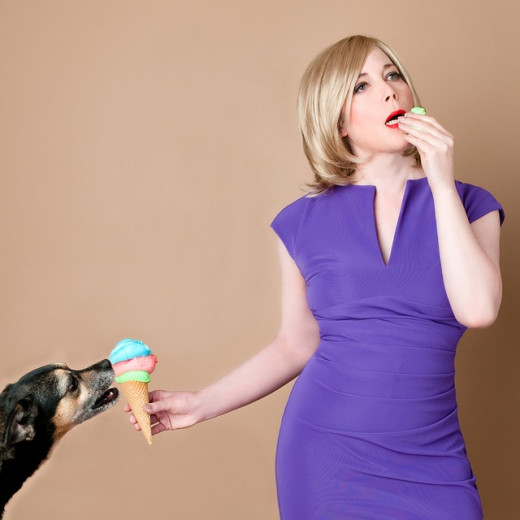
The Importance of a Balanced Diet
To make sure that your puppy remains healthy, you need to be careful choosing what you feed them. Your dog's health, behavior, and happiness are all largely dependent on the food that you provide. All living things have specific nutritional needs that must be met to maintain good health. Complicating matters further, every dog has different needs that often differ substantially from other dogs.
Because what you feed your puppy seriously influences not only their health and development but also behavior, every puppy owner should learn to recognize the symptoms of common deficiencies in nutrition.

Knowing how to recognize nutritional deficiencies can save you anguish as well as unnecessary trips to the vet.
It is important to observe closely your dog and try to understand what it needs when you make decisions about its diet. Large, foul-smelling stools, gas, dirty brown teeth, burping, shedding hair, dull coat, high susceptibility to ear and skin infections, high susceptibility to fleas and worms, lack of energy, hyperactivity, and your dog not wanting to eat the food, are key signs of dietary problems.
When planning what food to give your dog, you should base your choice on your dog's nutritional needs. Pay no attention to packaging, advertising or cost, and try to focus on the nutrients contained in each kind of food. You can find nutritional information by looking at the dog food package. This information lays out the food's ingredients, listing them by weight (starting with the ingredient that is heaviest and, therefore, most abundant in the food). Values for crude protein, fat, fiber, moisture, ash and often calcium, phosphorus, and magnesium will all be given on the packet.
The best foods have at least two animal proteins listed in the first five ingredients. Also called performance foods, these contain the right amount of oils and fats (for maintaining coat, skin and energy). Also, check that your dog food is high in animal proteins instead of grains because grain is hard for dogs to digest.
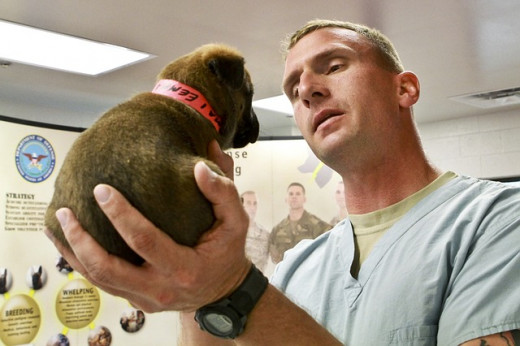
Guide to Vaccinations
Another factor that you can control that has a big influence on the health of your dog is your approach to vaccinations. The number of vaccinations dogs get has been growing continuously during the last two decades. Unfortunately, rather than making a dog more resistant to illness and increasing longevity, this trend has frequently caused the opposite.
A tendency to over-vaccinate has resulted in certain negative reactions to vaccinations
A tendency to over-vaccinate has resulted in certain negative reactions to vaccinations. These negative reactions are commonly known as vaccinosis. A dog might not react at all, but frequently dog's health and behavior can be negatively impacted by administering vaccines. Reactions can occur because of a single vaccine, several vaccines are given simultaneously, or a series of vaccines administered over a short period.
If you vaccinate your puppy without spacing them out properly, his immune system may break down
If you vaccinate your puppy without spacing them out properly, his immune system may break down, resulting in a number of health problems that could be serious. I know that I am giving the impression that I am not keen on vaccines, and I want to make sure that I am understood correctly. I am honestly not against vaccinations. What I don't like is vaccinations that are unnecessary and randomly administered. I also want to state that there is no scientific evidence that annual revaccinations are needed. Immunity can last for a long time, and the dog may even be immune to viruses for his or her entire life.
If a dog has previously acquired antibodies for a given virus, having him or her vaccinated again has the potential to harm their immune response. Vets, dog owners, and breeders have all begun to question the need for boosters because of the many adverse reactions to vaccinations that are not necessary. American regulations only call for the initial rabies vaccine to be administered followed by a booster every three years. Please never give a puppy that is under six months old a rabies vaccine.

Vaccine Possible Effects
Vaccines can cause severe health problems (including death), and some puppies may develop behavior disorders as a result of early vaccination. These behaviors could include seizure disorders including epilepsy, anxiety, insomnia, aggression and constant licking. It is crucial to make a vaccinations plan before actually having them administered as some vaccines interact with each other causing negative effects. An example of this is the rabies vaccine which when given in conjunction with other vaccines can result in seizures, epilepsy, and extreme mood swings giving rise to aggression.
Unfortunately, no one can tell whether your puppy will have a negative reaction to a vaccination or not. I strongly suggest that when your Puppy has his yearly checkup that you request a titer test from your vet. A titer test will tell you if your puppy has a high level of antibodies (high titer) for diseases that they have been vaccinated for in the past, potentially eliminating the need for revaccination or boosters. Titering is now considered an acceptable and safe alternative to blindly revaccinating your puppy. With progressive research into vaccinations and titer results, a lot of boarding kennels are now accepting a titer result as proof of a dog's immunity.
Many experienced vets now believe that the benefits of many vaccines are outweighed by the associated risks, and all vaccinations should be carefully considered. Here are some good guidelines to follow when planning your puppy's vaccination schedule:
- Wait for a minimum of three to four weeks between vaccinations.
You should only vaccinate your puppy for distemper and parvo once, with a follow-up booster shot four weeks afterward. To whether your puppy has enough antibodies, ask your vet to do a blood analysis. Should your dog possess sufficient immunity, further vaccination is unnecessary. You only need to vaccinate once a year if the titers are at a low level. - Wait until your dog is, at least, six months old before giving your puppy the rabies vaccine
(as required by US law). Be sure that you leave at least a month in between this and other vaccines.
- Before having your dog vaccinated, talk to your veterinarian about potential problems.
Is currently taking medication
Isn't in perfect health (the documentation supplied by vaccine manufacturers to vets states that a dog that is not perfectly healthy should not be vaccinated).
Currently has an infection of the ear, skin or eye.
Confirm to your veterinarian if your dog is experiencing an infection or just some common irritation.
Has had recent treatment for worms, fleas or ticks
There are some medicines that don't go well together and may affect your dog's health in a negative way. Before vaccination, always inform your vet in detail what medications your dog is taking.
Has any surgery scheduled, such as a neuter or spay, or even dental work.
The medicines that will be taken during and after a surgery may not go well with the vaccine. Inform your vet first if your dogs have planned or coming operations.
When Will Your Dog be Immuned
Your dog will develop immunity to the disease approximately three weeks after vaccination. It's vital for your puppy to be in otherwise good health during recovery because of the stress vaccines put on the immune system. Also, don't expose your puppy to undue stress during his vaccination recovery, since this can make him vulnerable to illness.
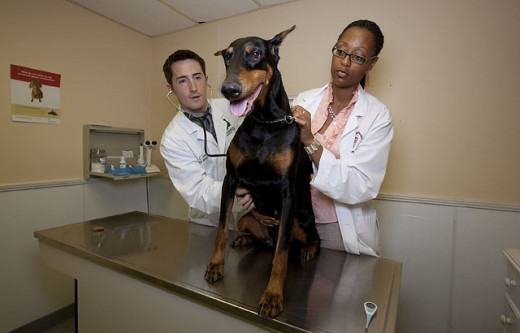
Dog Hypothyroidism
Hypothyroidism is an illness that can occur as a result of a poor diet, inappropriate vaccinations, and neutering at a very young age. Hypothyroidism results from a slow thyroid gland. The effects include a range of undesirable physical and behavioral problems. There has been a spike in hypothyroidism since the 1970s, which many dog care professionals put down to changes in the way we care for our dogs. Unbelievably, 50 percent of dogs now exhibit some signs of this disease.
The thyroid is a component of the endocrine system. Hormone levels are controlled by this system, as is the brain's capacity for handling stress. It is also thought that there is a genetic component to hypothyroidism, and having parents afflicted with the disease gives a dog a greater chance of developing it.
Heart disorders, lack of control over body temperature, oily, scaly skin, blackened skin on the belly, paralysis, seizures, thinning of the hair on each side of the body, and weight gain are all physical manifestations of hypothyroidism found in dogs Hypothyroidism can also affect behavior, with associated problems including anxiety, fear, aggression, hyperactivity, undue stress, problems learning and constant licking at a certain area.
If your puppy displays any of these symptoms, see a vet right away. To be certain that the dog does not suffer from hypothyroidism, ask your veterinarian to draw some blood and conduct a full thyroid survey. You will then know if your dog needs to further treatment and medicine or not.

Bone Misalignment
If your puppy's skeletal system is not properly aligned, it can significantly impact your puppy's behavior, as well as their physical condition. Because of this, it is wise to have a dog chiropractor examine your puppy periodically. You should start periodical checkups with a chiropractor while your dog is still a puppy because puppies can often suffer from misaligned bones (usually causes by rough play) that may prevent proper skeletal development and growth. It is good also to let a chiropractor periodically examine adult dogs. Having your dog checked out will ensure that any misalignments will be corrected, meaning that your dog will not suffer pain and discomfort, and will not develop behavioral problems that often result from skeletal misalignments.
Vaccination is no doubt the best way to keep our dogs healthy. However, it should be planned and taken seriously. Like humans, dog's health should be a top priority for a dog to live a long life and healthy lifestyle. From the foods he eat to his vaccination, everything should be monitored for your dog to live its best.
Dog Diet Check
What Food Do You Feed Your Dog?
Did You Enjoy or Learn Something Today?
Let us know your thoughts through the comments below. Have you had any experience about your dog's health that's worth the share?


